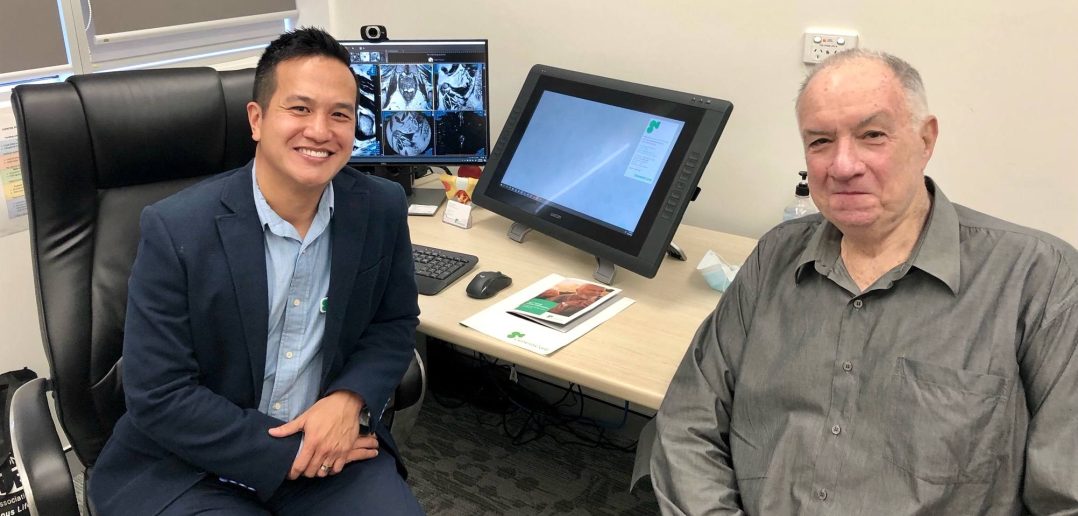Therapy ‘boost’ for prostate cancer outcomes

27/05/22
A ground-breaking treatment shown to improve outcomes for prostate cancer patients is available for the first time in Queensland.
GenesisCare Buderim on the Sunshine Coast is offering ‘dominant lesion boost therapy’, an innovative approach involving extra radiation on the tumour as well as the standard treatment of the entire prostate.
The technique’s success rates were highlighted in clinical research recently published in the Journal of Clinical Oncology.
“The research confirmed that radiation therapy – an already safe and proven treatment option – is now even more effective in controlling prostate cancer when used in this innovative way,” said Associate Professor Alex Tan, a radiation oncologist at GenesisCare Buderim.
“On top of this, there is no significant increase in side-effects,” he added.
By combining the therapy with a gel spacer – a cushion around the prostate – and triggered imaging therapy, which constantly monitors the tumour and suspends treatment if the target moves, specialists can further reduce risk of damaging healthy tissue.
“I’m excited to offer this state-first therapy at GenesisCare Buderim for local men living with prostate cancer, without the need for extra treatment sessions, procedures or time compared to conventional treatment,” A/Prof Tan said.
The Sunshine Coast has one of the highest rates of cancer diagnosis in Queensland, with prostate cancer the most common form of the disease for men at around 500 new cases each year.
“Due to the ageing population on the Sunshine Coast, as well as the post-pandemic influx of new residents, it is imperative that we continue to invest in the latest treatments and technologies to ensure the best possible life outcomes for our patients,” said Andrew Saunders, General Manager for GenesisCare Oncology Queensland.
Noosaville resident Stephen Winbank, 69, is having treatment at GenesisCare after being diagnosed with an aggressive cancer following a routine prostate-specific antigen (PSA) test.
“I was pretty shocked when they told me I had prostate cancer, because I wasn’t expecting it,” he said.
“My message to other men is get regular PSA checks even if you don’t have symptoms – I didn’t and I still had prostate cancer – and if you’ve been diagnosed, try to remain positive.”
